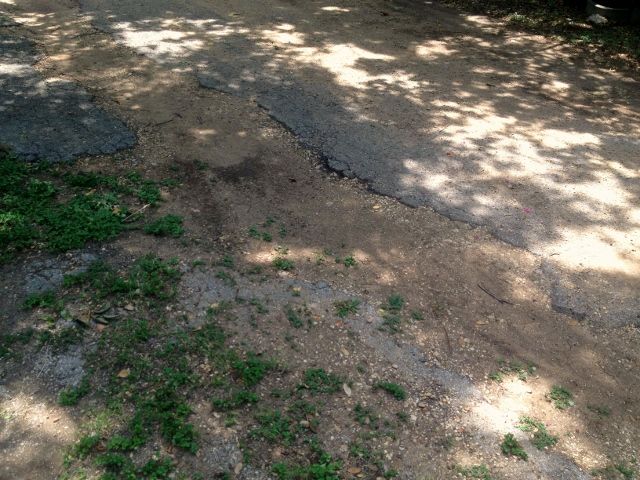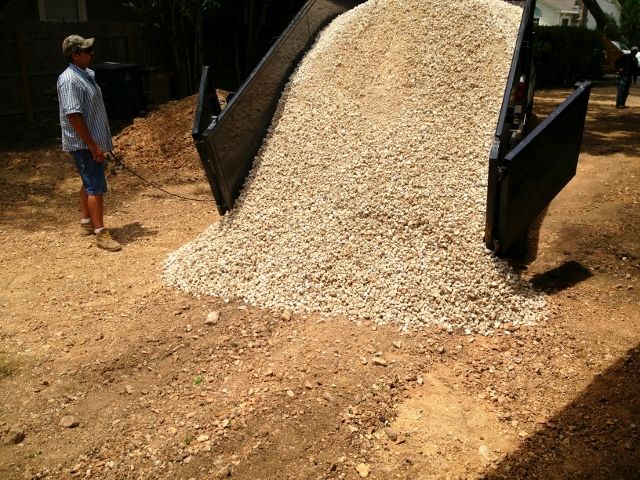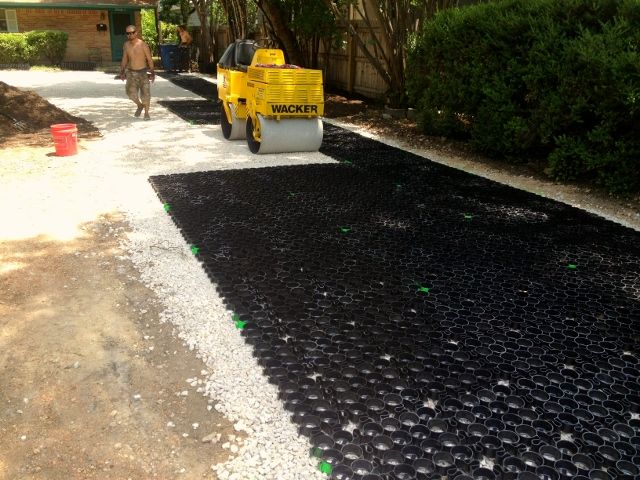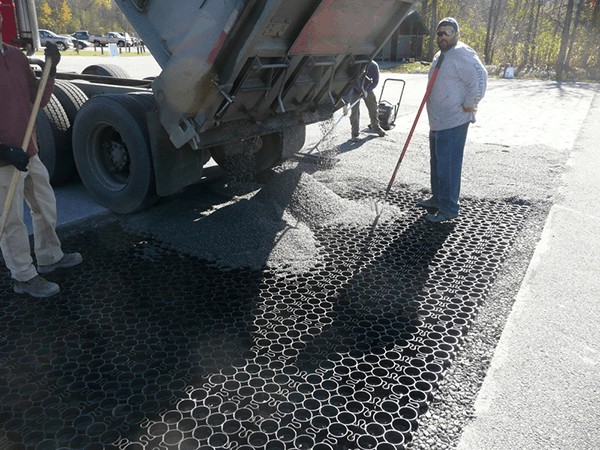TRUEGRID Typical Residential Gravel Installation
Watch Video Technical Specs Submit Your DesignBack to installation guides
Step 1

Prepare the Subgrade
- Excavate to depth allowing room for TRUEGRID paver thickness and base depth refer to TRUEGRID typicals for common construction practices (6” base depth typical for residential driveways). Grid must be ¼” or slightly below surrounding grade, edging of choice and transitions from existing roads or hardscapes.. TRUEGRID cross sections can be built above existing grade without excavation. However, proper edging to keep base aggregate encased is recommended.
- Subgrade must be relatively dry. No standing water. Proof roll subgrade or stabilize subgrade when necessary for unstable soils.
- Lay a geofabric (if specified). Geofabric recommended for separation between subgrade soils and detention base stone to prevent interblending and loss of detention void space in detention base stone.
- Subgrade soils with poor permeability require drainage. Slope the subgrade for sheet flow storm water, as needed, install perforated pipe to move water and drain the site to specific points. (refer to TRUEGRID typicals for direction). Link.
Step 2

Prepare the Base
- Lay base rock. Clean, angular stone ¾” to 1” (#57 common). Compact in 4” lifts with a roll compactor, or plate compactor to settle, level and lock in clean angular stone. DO NOT USE ROUND ROCK for base aggregate. When detention or subsurface drainage is not needed, a typical compactible road base can be used.
- A final plate compaction to subbase stone will provide an even surface for the TRUEGRID Paver to be directly installed on.
Step 3

Install TRUEGRID Pavers
- Grid must be ¼” or slightly below surrounding grade, adjoining edging, or transition pavement. You can recess the grid deeper if planning to completely cover the grid.
- Start in corner of site with male tabs on grid facing out. Line up grid and connect next grid section. Install SuperSpots if using.
TRUEGRID can be cut to form or around trees, curbs and any organic shape. Cut with electric saw such as a circular saw or reciprocating saw.
Step 4

Fill Grid with Gravel or Soil for Seeding
- Common gravel infill is 5/8” or ¾” fill rock. Spread to top of grid cells or slight overfill as desired to cover grid. Compact to settle and lock in infill aggregate.
For grass infill, fill cells with soil to just below top of grid seed for grass growth. Hydro seeding works best for quicker, fuller growth.
Completed Installation
TRUEGRID Specs
Technical Specifications
Looking for product specs, cut sheets and CSI documents? Visit our Technical Info page to download PDFs, BIM objects and CAD files for all of our products.
Submit your design
Need help with your project?
Work with our knowledgeable and experienced team. We're here to help you specify the right TRUEGRID product for your project and assist with your site specific design ...from surface to subgrade.

